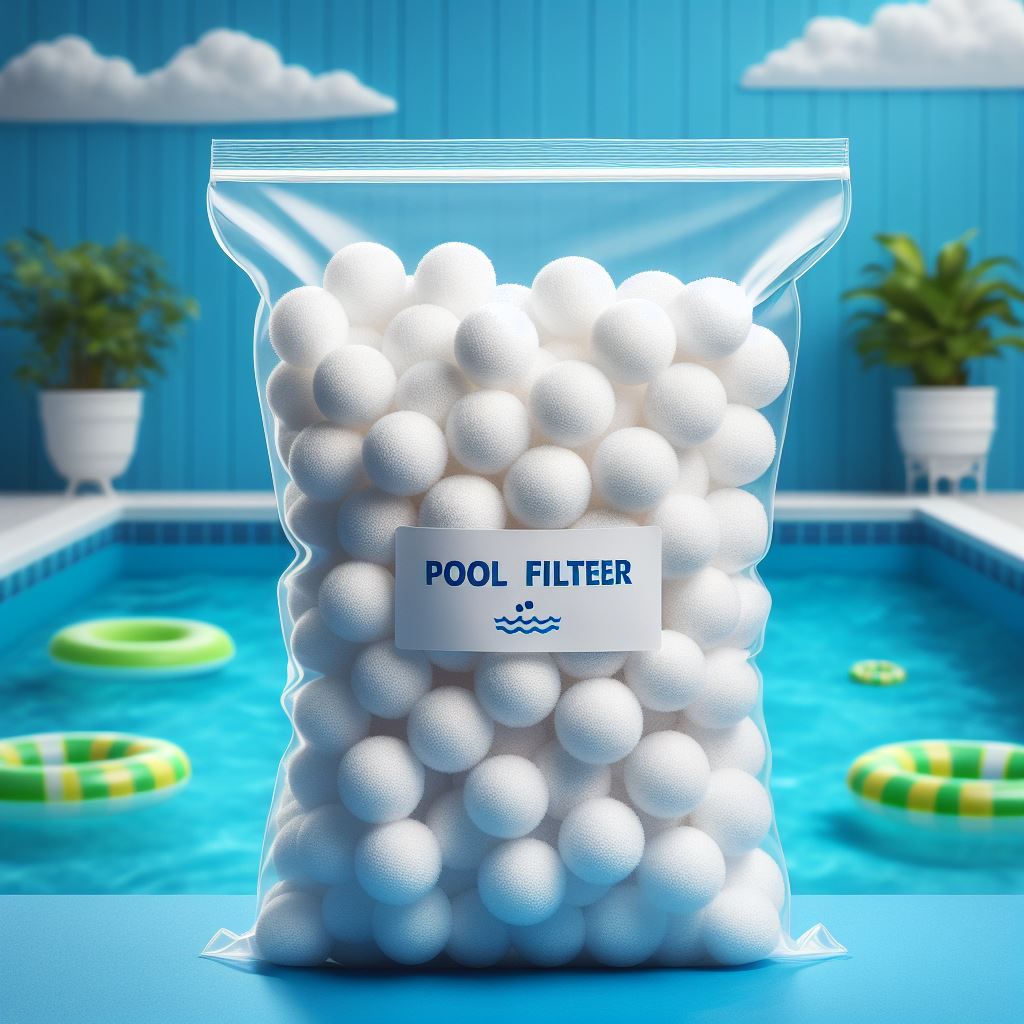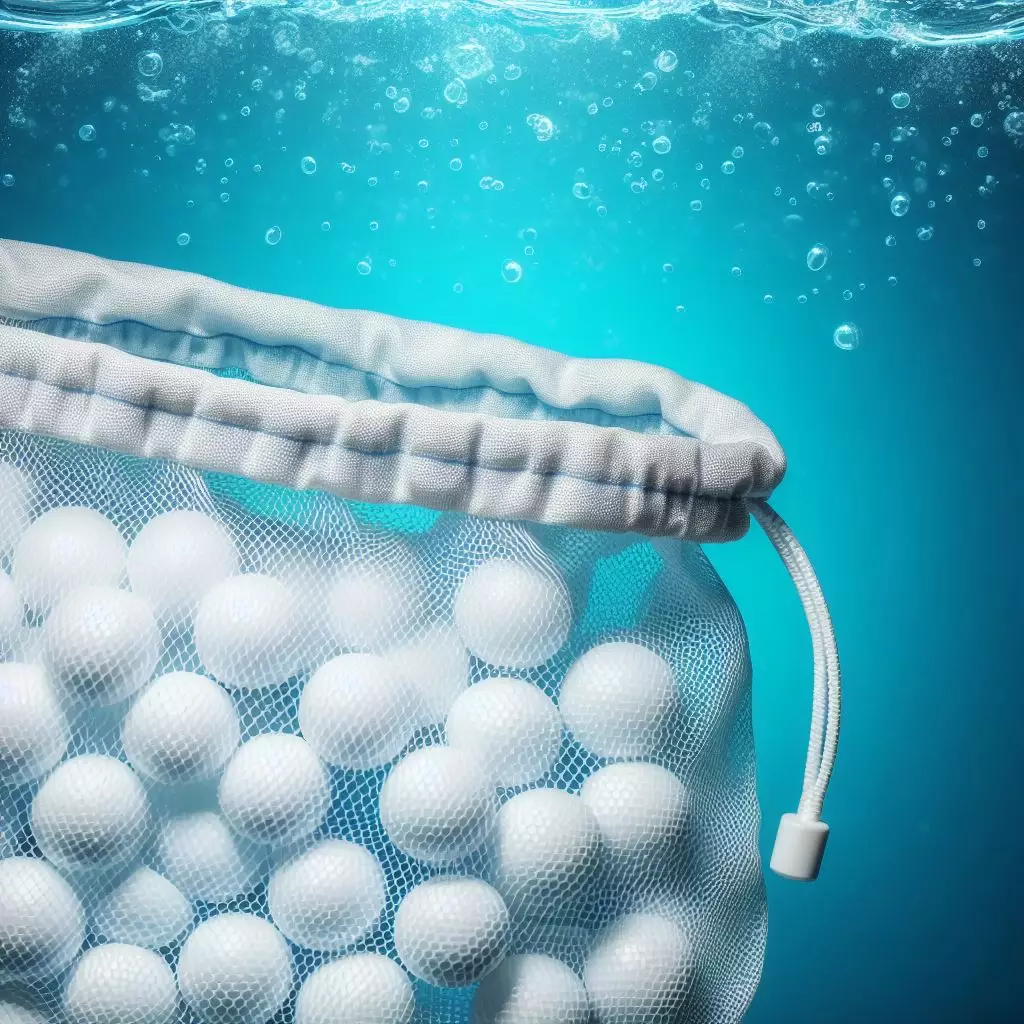In the quest for pristine pool water, the filtration system plays a pivotal role. Within this system, the choice of filtration media can greatly influence both the quality of the water and the ease of maintenance. Traditional sand filters have long been a staple in this arena, but an innovative contender, pool filter balls, has emerged, offering a modern alternative. This article delves into the nuances of pool filter balls versus sand, exploring their features, benefits, drawbacks, and practical considerations, to aid pool owners in making an informed choice tailored to their specific needs.
Introduction to Pool Filtration Media
Clean and clear water is essential for any swimming pool, and the heart of achieving this is the filtration system. The choice of filtration media can significantly affect water clarity, maintenance levels, and overall pool health. Traditionally, sand has been the go-to medium, but recent advancements have introduced pool filter balls, a synthetic alternative that promises efficiency and eco-friendliness.
Understanding Sand as a Filtration Medium
Sand filters work by passing pool water through a bed of sand, where dirt and debris are trapped between the sand particles. This method is effective for removing particles down to about 20 to 40 microns in size.
Pros of Sand Filters
Durability: Sand filters are known for their longevity, often lasting up to 5-7 years before needing a replacement.
Low Cost: Sand is a cost-effective medium, both in initial investment and long-term maintenance.
Ease of Maintenance: Maintenance generally involves periodic backwashing, which is a straightforward process.
Cons of Sand Filters
Size of Particles Removed: While effective for larger debris, sand filters may not capture ultra-fine particles, potentially leaving water less clear than desired.
Weight and Bulk: Sand filters are heavy and can be cumbersome to install and replace.
Exploring Pool Filter Balls
Pool filter balls are a modern alternative made from 100% polyethylene. These balls, designed to replace sand in your filter, offer a range of benefits including improved filtration efficiency and reduced environmental impact.
Pros of Pool Filter Balls
Efficiency: Filter balls are capable of filtering out particles as small as 3 microns, significantly improving water clarity.
Lightweight: They are much lighter than sand, making them easier to handle and replace.
Eco-Friendly: Being recyclable, pool filter balls offer an environmentally friendly option.
Reduced Maintenance: They do not require backwashing, saving water and reducing maintenance time.
Cons of Pool Filter Balls
Cost: While the initial cost may be higher than sand, the long-term benefits and reduced maintenance can offset this.
Compatibility: Not all sand filters are compatible with filter balls, so it’s important to check with the manufacturer.

Comparative Analysis
When comparing pool filter balls to sand, several factors come into play, including filtration efficiency, maintenance requirements, environmental impact, and cost-effectiveness.
Filtration Efficiency: Pool filter balls offer superior filtration, capturing finer particles and improving water clarity over sand.
Maintenance and Longevity: While sand requires periodic backwashing, filter balls do not, simplifying maintenance. However, sand’s longevity can be a plus, with its lifespan outpacing that of filter balls in some cases.
Environmental Impact: Pool filter balls edge out with their recyclable nature, making them a more sustainable option compared to sand, which must be disposed of in landfills.
Cost-Effectiveness: Initial investment in pool filter balls may be higher, but the savings in water (due to the lack of need for backwashing), energy efficiency, and potentially longer filter cycles can make them more economical over time.
Practical Considerations for Pool Owners
When deciding between pool filter balls and sand, consider the following:
Compatibility with Your Existing System: Ensure your system can accommodate the alternative you choose.
Desired Water Clarity: If ultra-clear water is a priority, filter balls may be the better choice.
Maintenance Preference: If minimizing maintenance is key, filter balls offer a compelling advantage.
Budget and Long-Term Costs: Consider both the initial outlay and the ongoing costs of your chosen filtration media.
Conclusion
The choice between pool filter balls and sand hinges on a range of factors, from filtration efficiency and maintenance to environmental impact and cost. Pool filter balls offer a modern, efficient, and eco-friendly alternative, suited for those prioritizing ease of use and water clarity. Meanwhile, traditional sand filters remain a viable, cost-effective option for those valuing simplicity and proven performance. Ultimately, the decision should align with your specific needs, preferences, and the specifications of your pool system, ensuring that your swimming pool remains a source of joy and refreshment for years to come.

